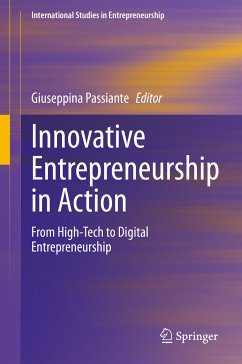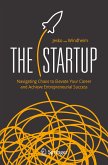This book analyses prevailing approaches and policies in innovative entrepreneurship. It explores the ways in which entrepreneurs learn and develop innovation-based businesses to drive increased regional competitiveness. Specifically, the contributions propose that sustainable innovation ecosystems booster innovative entrepreneurship and thus create a competitive advantage for smart and sustainable growth. It also examines the current state of entrepreneurship education, where the development of entrepreneurial abilities is considered a process of value creation-both economic and social-with the final aim to create both new start-ups and entrepreneurial mind-sets.
Featuring theoretical approaches and empirical evidences, this title is appropriate for scholars, academics, students and policy makers in technology and innovation management, economics of innovation and entrepreneurship.
Dieser Download kann aus rechtlichen Gründen nur mit Rechnungsadresse in A, B, BG, CY, CZ, D, DK, EW, E, FIN, F, GR, HR, H, IRL, I, LT, L, LR, M, NL, PL, P, R, S, SLO, SK ausgeliefert werden.
Es gelten unsere Allgemeinen Geschäftsbedingungen: www.buecher.de/agb
Impressum
www.buecher.de ist ein Internetauftritt der buecher.de internetstores GmbH
Geschäftsführung: Monica Sawhney | Roland Kölbl | Günter Hilger
Sitz der Gesellschaft: Batheyer Straße 115 - 117, 58099 Hagen
Postanschrift: Bürgermeister-Wegele-Str. 12, 86167 Augsburg
Amtsgericht Hagen HRB 13257
Steuernummer: 321/5800/1497
USt-IdNr: DE450055826
Bitte wählen Sie Ihr Anliegen aus.
Rechnungen
Retourenschein anfordern
Bestellstatus
Storno









